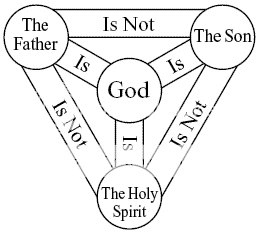Pseudo-Onkelos
(?)Community Member
- Report Post
- Posted: Sat, 21 Apr 2012 04:09:58 +0000
Majnooni
[do read my edit above also to the last post, I hoped to finish it before you replied, not that it's that important]
Ok, I will try to explain as best I can how I understand it. In the beginning and eternally there was the word. The word is the creative energy of God, therefore a part of God. The word is what created everything in creation, not as a person, but as a kind of force you might say ( force sounds very Star Wars but I don't really know what other word to use to describe it). Jesus the person is literally that word in human form, but it/he was not a person until Jesus was conceived on earth.
Also, to say that trinitarians believe or don't believe something... I'm not sure whether we agree or not, you tell me, but even if we disagree, not all trinitarians believe the same things.
Ok, I will try to explain as best I can how I understand it. In the beginning and eternally there was the word. The word is the creative energy of God, therefore a part of God. The word is what created everything in creation, not as a person, but as a kind of force you might say ( force sounds very Star Wars but I don't really know what other word to use to describe it). Jesus the person is literally that word in human form, but it/he was not a person until Jesus was conceived on earth.
Also, to say that trinitarians believe or don't believe something... I'm not sure whether we agree or not, you tell me, but even if we disagree, not all trinitarians believe the same things.
That's a unitarian view you presented. It is incompatible with trinitarianism.
I understand both views. I have studied Christian theology, and the Trinity was one of the first things I spent my time studying. I am no longer a Christian, though.




